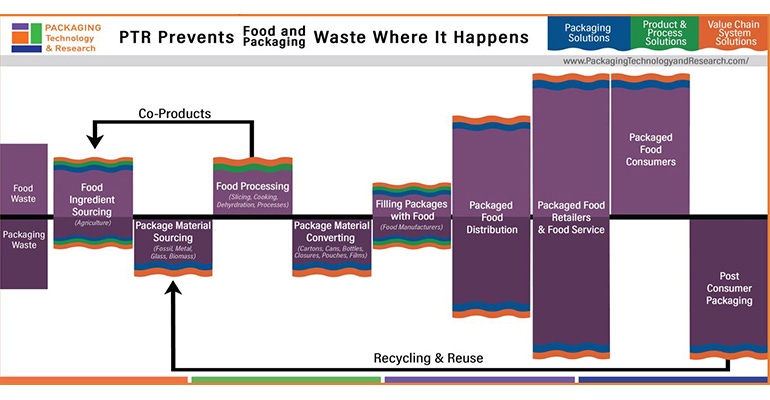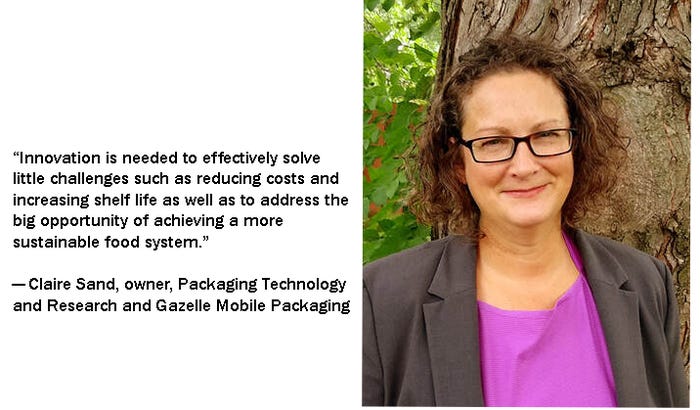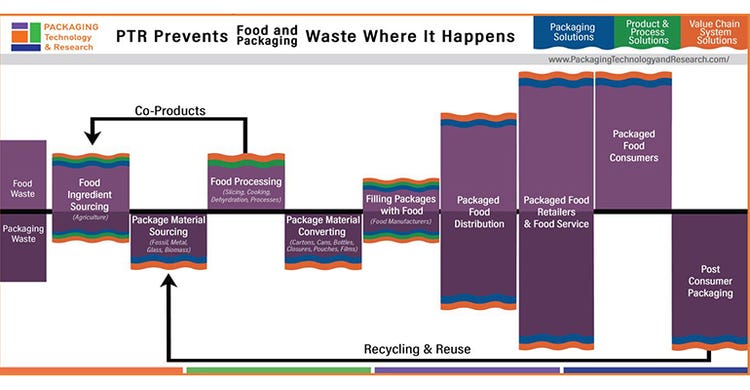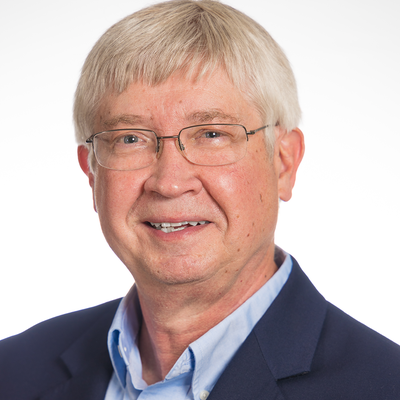Claire Sand, recipient of the 2020 Riester-David-Brody award for lifetime achievement in food packaging, talks briefly about her career and outlook for the industry.

I confess that I don’t spend a great deal of time or effort in LinkedIn — there are only so many hours in a day. However, when occasionally visiting the online business platform, I find excellent content and make new connections with industry professionals, which is how I came across Claire Sand, PhD.
Shortly thereafter we had a stimulating chat, during which I learned that she has more than 30 years’ experience in industry and academia, and is owner of Packaging Technology and Research and Gazelle Mobile Packaging. She is also Adjunct Professor, CalPoly, Michigan State University, and the University of Minnesota. She's passionate about reducing food waste and the role of packaging to help mitigate waste.
I also discovered she was the recipient of the 2020 Institute of Food Technologists’ Riester-Davis-Brody Award that recognizes lifetime achievement for top innovators in food packaging technology.
I’m thrilled to have Sand join Packaging Digest as a regular contributor and, by way of introduction, she agreed to participate in a quick introductory interview for the benefit of readers.

What sparked your interest in food science and packaging?
Sand: Mentors and course electives on societies and agriculture opened my eyes to an amazing world that needed packaging to mitigate food waste.
You have considerable teaching experience at the college and university level. What do you find most gratifying about educating packaging students?
Sand: I love to see students learn course material in the context of the abundance of perspectives that other students have in the class.
What’s a lesson you’ve learned in food packaging?
Sand: That there is always more to be learned! Another lesson is that technology is just as important as the approach. Innovation in both is needed to effectively solve little challenges such as reducing costs and increasing shelf life as well as to address the big opportunity of achieving a more sustainable food system.

What’s a recent development you’ve come across that excites you?
Sand: There are so many! One development is the creation of refined regional and small-scale packaging clusters for entrepreneurs to rapidly, safely, and sustainably scale-up. Large-scale value chains are becoming more agile by borrowing from this development.
What do you see as the most pressing issue in food packaging in 2020?
Sand: The most pressing issue is intelligent packaging. We need to bring intelligent packaging to fruition to ensure food is safe for consumers. The challenge of linking benefits and costs has slowed progress. Another pressing issue is the need for more basic and adaptive packaging research.
Sand discusses her company and projects in this YouTube video.
About the Author(s)
You May Also Like




